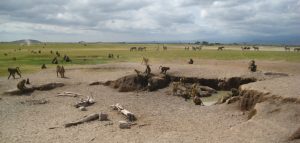Enter your address to receive notifications about new posts to your email.
Articles tagged Genetics Journal
(301 results)
-
What we learned from the Hiroshima/Nagasaki survivor studies
The detonation of atomic bombs over the Japanese cities of Hiroshima and Nagasaki in August 1945 resulted in horrific casualties and devastation. The long-term effects of radiation exposure also increased cancer rates in the survivors. But public perception of the rates of cancer and birth defects among survivors and their children is in fact greatly…
-
Kimura & Crow: Infinite alleles
For two weeks in the summer of 1953, Motoo Kimura enjoyed a welcome respite from loneliness and the austerity of post-war Japan. Crossing the Pacific from Yokohama to Seattle to commence PhD studies at Iowa State University, Kimura played deck golf, enjoyed full service meals, and napped to the soothing vibrations of the venerable passenger…
-
Why flies forget: a molecular look at long-term memory
Memory is a complex neurological process, and understanding its mechanics rarely yields clear-cut answers. So far, research on the memory-implicated gene HDAC4 has been no exception—in fact, HDAC4’s effects on long-term memory seem completely contradictory. Increased HDAC4 protein in the cell nucleus causes memory deficits, and consistent with this, a human mutation that resulted in…
-
Fast-growing bacteria doom their colonies’ attempts at resistance
Lurking in colonies of pathogenic bacteria are drug-resistant mutants. If the colony is exposed to antibiotics, these resistant mutants may survive, but they still face the challenge of recolonizing the host. Their success in this task depends on their diversity; a diverse population is more likely to harbor mutants that can withstand a second threat,…
-
Meet the editors at TAGC
Got a hot manuscript or a burning question for a GENETICS or G3 editor? Just want to talk about scholarly publishing in general? Here’s how you can track down an editor at The Allied Genetics Conference this week: Watch out for ribbons GENETICS and G3 Editors will be wearing silver “Editor” ribbons on their name…
-
Primers: Make friends with a new model organism
We hope everyone at The Allied Genetics Conference this week will take the opportunity to attend some presentations outside their “home” genetics community. But we realize that sometimes listening to talks in a new field can feel like visiting a foreign country, with its own language, unfamiliar customs, and insider jokes. If only you had…
-
Complex Traits and Simple Systems: An Interview with Leonid Kruglyak
Sometimes, the most useful scientific tool is a unique perspective. Leonid Kruglyak is a remarkable example of that fact. He originally trained as a physicist, and his quantitative background was foundational to his successful career in genetics and genomics. Kruglyak’s work focuses on the transmission of complex traits and the genetic basis of phenotypic variation. He…
-
July GENETICS Highlights
Check out the July issue of GENETICS by looking at the highlights or the full table of contents! This Month’s Centennial Articles Alfred Sturtevant and George Beadle untangle inversions, pp. 1001-1003 R. Scott Hawley and Barry Ganetzky R. Scott Hawley and Barry Ganetzky introduce Sturtevant and Beadle’s 1936 Classic that explained why inversion heterozygosity in the Drosophila X…
-
Two-faced protein both speeds and slows cell cycle
Although some proteins have a single career, many—like Dis3—lead a double life. In the yeast Schizosaccharomyces pombe, loss-of-function mutations in dis3 cause defects in mitosis, implying that Dis3 normally supports cell cycle progression. But perplexingly, results in humans suggest that Dis3 normally slows cell cycle progression: mutations that partially disable dis3 contribute to the development…
-
Selfish self-fertilization hampers adaptation
When finding a mate is difficult, self-fertilization offers a tempting solution by increasing the number of offspring an individual can produce. But although “selfing” provides a stopgap solution when mates are scarce, it is frequently an evolutionary dead end; when environmental conditions change, species with high selfing rates seem prone to extinction. In an article…
-
Fecal alchemy: Turning poop into genomics gold
When it comes to genotyping technology, poop genetics is stuck in the 1990s. While most geneticists are now awash in genome-scale data from thousands of individuals, those who depend on fecal and other non-invasively collected samples still rely on old-school, boutique panels of a dozen or so genetic markers. But feces — along with fur,…



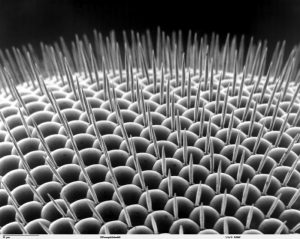
![This colorized version of PHIL 232 depicts a scanning electron micrograph (SEM) of a number of Pseudomonas aeruginosa bacteria. Photo and caption credit: Janice Haney CarrContent Providers(s): CDC/ Janice Haney Carr [Public domain], via Wikimedia Commons.](https://s36063.pcdn.co/wp-content/uploads/2016/07/rsz_1pseudomonas-300x211.jpg)

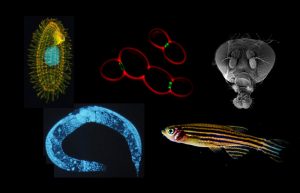

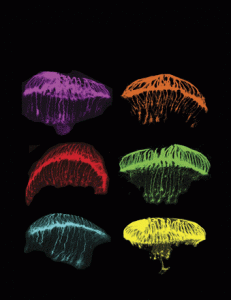
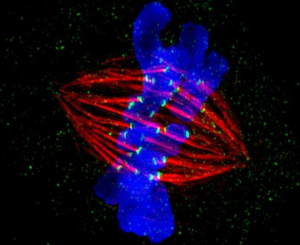
![Helonias bullata, a species threatened with extinction. Its low genetic diversity, a factor contributing to its decline, may have been caused by a high rate of self-fertilization. By Hedwig Storch (Own work) [CC BY-SA 3.0 (http://creativecommons.org/licenses/by-sa/3.0)], via Wikimedia Commons.](https://s36063.pcdn.co/wp-content/uploads/2016/07/1024_Helonias_bullata_Arktisch-alpiner_Garten_Chemnitz-0931-e1467579681557-300x197.jpg)
